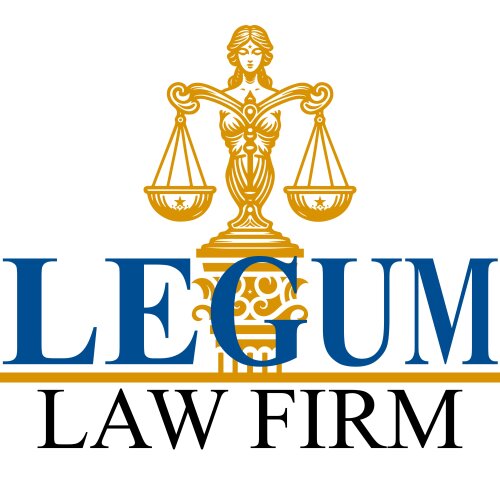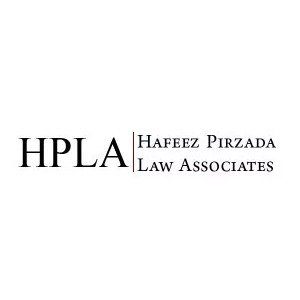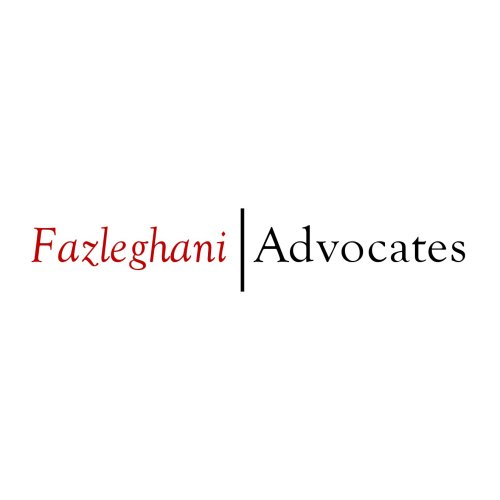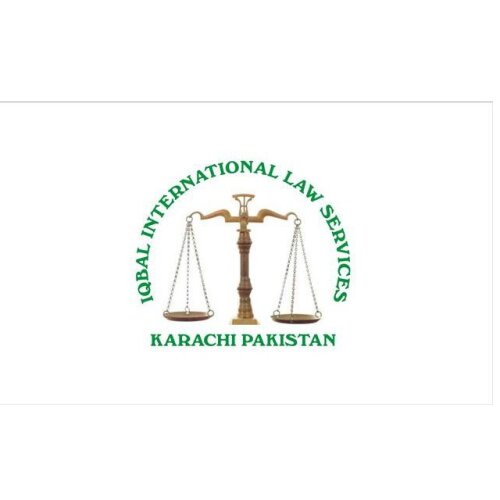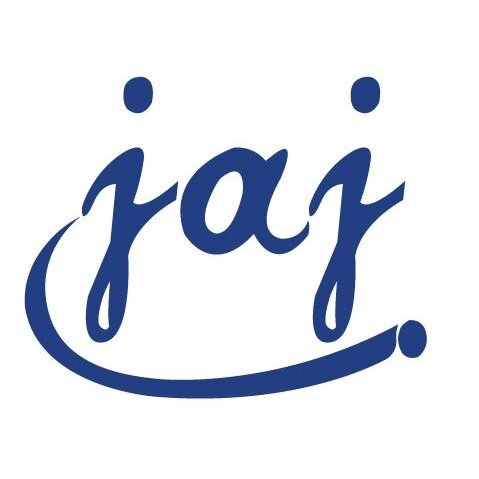Best Corporate & Commercial Lawyers in Karachi
Share your needs with us, get contacted by law firms.
Free. Takes 2 min.
List of the best lawyers in Karachi, Pakistan
Pakistan Corporate & Commercial Legal Questions answered by Lawyers
Browse our 1 legal question about Corporate & Commercial in Pakistan and read the lawyer answers, or ask your own questions for free.
- can a forignen company do business activities with a welfare organization in Kp pakistan?
- A welfare organization in kp pakistan, crafts diffrent decoration items including hand made wooden crafted decoration pices, painting, hand art on fabric in welfare center by orphan and poor children. A forignor japnese company wants to order them to craft some decoration items for them to export to japan. what... Read more →
-
Lawyer answer by AL RUSHD Advocates, Corporate & Tax Consultants
Generally, there is no restriction on trading activities by a non-profit company. However, certain compliance requirements would apply, such as: Sales Tax Registration, POW registration, Customs formalities, and State Bank of Pakistan's forex regulations.
Read full answer
About Corporate & Commercial Law in Karachi, Pakistan
Corporate and commercial law in Karachi governs the formation, running, and regulation of businesses and the transactions they undertake. As the country’s financial hub, Karachi is home to the headquarters of many large corporations and a diverse range of commercial activities. Corporate lawyers play a critical role in ensuring that businesses operate within the legal framework set by Pakistani authorities. This area of law covers incorporation, compliance, mergers and acquisitions, banking, intellectual property, contract negotiation, labor relations, and dispute resolution, among others.
Why You May Need a Lawyer
Seeking legal help in corporate and commercial matters is essential for several reasons. Some common situations where a lawyer’s guidance is necessary include:
- Starting or incorporating a business and choosing the right legal structure
- Drafting, reviewing, or negotiating contracts and agreements
- Handling mergers, acquisitions, joint ventures, or business restructuring
- Navigating regulatory compliance with the Securities and Exchange Commission of Pakistan (SECP), the State Bank of Pakistan (SBP), and local authorities
- Addressing shareholder, partner, or boardroom disputes
- Managing intellectual property issues such as trademarks, patents, and copyrights
- Dealing with labor and employment matters
- Resolving corporate disputes via litigation or alternative dispute resolution (ADR)
- Ensuring proper tax registration and planning
- Wind-up, dissolution, or liquidation of companies
A good corporate lawyer can help protect your business interests, avoid costly mistakes, and ensure legal compliance at every stage.
Local Laws Overview
Corporate and commercial laws in Karachi, and Pakistan in general, are governed by a combination of federal and provincial legislation. Key legal frameworks include:
- Companies Act, 2017: Regulates the incorporation, governance, and dissolution of companies.
- Partnership Act, 1932: Governs partnerships and their conduct within Pakistan.
- Contract Act, 1872: Lays down the law relating to contracts and agreements.
- Securities Act, 2015: Oversees the securities market, including public company regulations and stock exchange conduct.
- Intellectual Property Laws: Various laws and ordinances protect trademarks, patents, and copyrights.
- Banking Companies Ordinance, 1962: Regulates the functioning of banks and financial institutions.
- Taxation Laws: Federal Board of Revenue (FBR) regulations cover income tax, sales tax, and other business-related taxes.
- Labor laws are governed by the Industrial Relations Act, Shops and Establishments Ordinance, and related rules.
Businesses in Karachi must also comply with regulations issued by the Karachi Metropolitan Corporation, Sindh government, and other regulatory bodies, depending on the nature and location of their commercial activities.
Frequently Asked Questions
What is the process for registering a company in Karachi?
The registration process begins with name availability search and reservation through SECP. After preparing necessary documents like Memorandum and Articles of Association, you submit an application online or at SECP’s local office. Once approved, the company receives its incorporation certificate.
What types of business structures are available in Pakistan?
Common structures include sole proprietorship, partnership, private limited company, public limited company, and branch or liaison office for foreign entities. Each structure has different legal and tax implications.
How are contracts enforced in Karachi?
Contracts are primarily governed by the Contract Act, 1872. If a contract is breached, parties may seek enforcement or compensation through civil courts or by using alternative dispute resolution mechanisms.
What are the basic compliance requirements for a company?
Compliance typically includes filing annual returns, maintaining updated statutory records, holding mandatory meetings, tax registrations, and adhering to SECP’s rules. Sector-specific licenses or approvals may also be required.
How does one resolve business disputes in Karachi?
Disputes can be resolved through negotiation, mediation, or arbitration, and if necessary, by filing a lawsuit in the courts. Many contracts specify arbitration for quicker resolution.
What are the main tax obligations for companies?
Companies must register with FBR, obtain a National Tax Number (NTN), pay prescribed taxes such as income tax and sales tax, and file regular tax returns. Failure to comply can result in penalties and legal action.
How is intellectual property protected under Pakistani law?
Trademarks, patents, and copyrights are protected by registering them with respective government offices. Legal action can be taken against infringement through the courts.
What licenses are needed to operate a business in Karachi?
Depending on the type of business, one may need a trade license from local authorities, an NTN from FBR, sales tax registration, and industry-specific licenses from regulatory agencies.
Can foreign nationals or companies invest in Karachi?
Yes, foreign investment is permitted with certain restrictions. Foreign investors must comply with SBP and SECP regulations regarding foreign shareholding, repatriation of profits, and sector-specific guidelines.
What should I consider before entering into a partnership or joint venture?
Review all agreements carefully, clarify each partner’s roles and obligations, outline profit and loss sharing, and anticipate exit or dispute situations. Legal assistance is crucial for drafting enforceable partnership or joint venture agreements.
Additional Resources
If you need further information or support, the following organizations and governmental bodies may be helpful:
- Securities and Exchange Commission of Pakistan (SECP)
- Federal Board of Revenue (FBR)
- Intellectual Property Organization of Pakistan (IPO Pakistan)
- Karachi Chamber of Commerce & Industry (KCCI)
- State Bank of Pakistan (SBP)
- Sindh Board of Investment
- Trade Development Authority of Pakistan (TDAP)
- Legal Aid Office or local bar associations for referrals to qualified lawyers
Next Steps
If you require legal assistance in corporate and commercial matters in Karachi, it is recommended to:
- Identify and clearly outline the legal issue or business goal you are facing
- Gather all relevant documents and information before meeting a lawyer
- Consult a qualified corporate and commercial lawyer for personalized advice
- Ensure that your lawyer is experienced with local laws and regulatory requirements
- Follow up regularly, and request written documentation of all legal actions and opinions
Professional legal guidance can help safeguard your business and ensure compliance with all applicable laws and regulations in Karachi.
Lawzana helps you find the best lawyers and law firms in Karachi through a curated and pre-screened list of qualified legal professionals. Our platform offers rankings and detailed profiles of attorneys and law firms, allowing you to compare based on practice areas, including Corporate & Commercial, experience, and client feedback.
Each profile includes a description of the firm's areas of practice, client reviews, team members and partners, year of establishment, spoken languages, office locations, contact information, social media presence, and any published articles or resources. Most firms on our platform speak English and are experienced in both local and international legal matters.
Get a quote from top-rated law firms in Karachi, Pakistan — quickly, securely, and without unnecessary hassle.
Disclaimer:
The information provided on this page is for general informational purposes only and does not constitute legal advice. While we strive to ensure the accuracy and relevance of the content, legal information may change over time, and interpretations of the law can vary. You should always consult with a qualified legal professional for advice specific to your situation.
We disclaim all liability for actions taken or not taken based on the content of this page. If you believe any information is incorrect or outdated, please contact us, and we will review and update it where appropriate.
Browse corporate & commercial law firms by service in Karachi, Pakistan
Karachi, Pakistan Attorneys in related practice areas.





